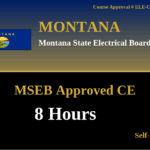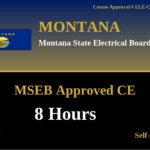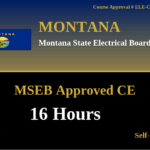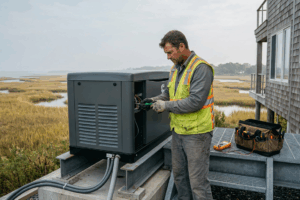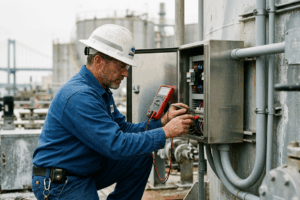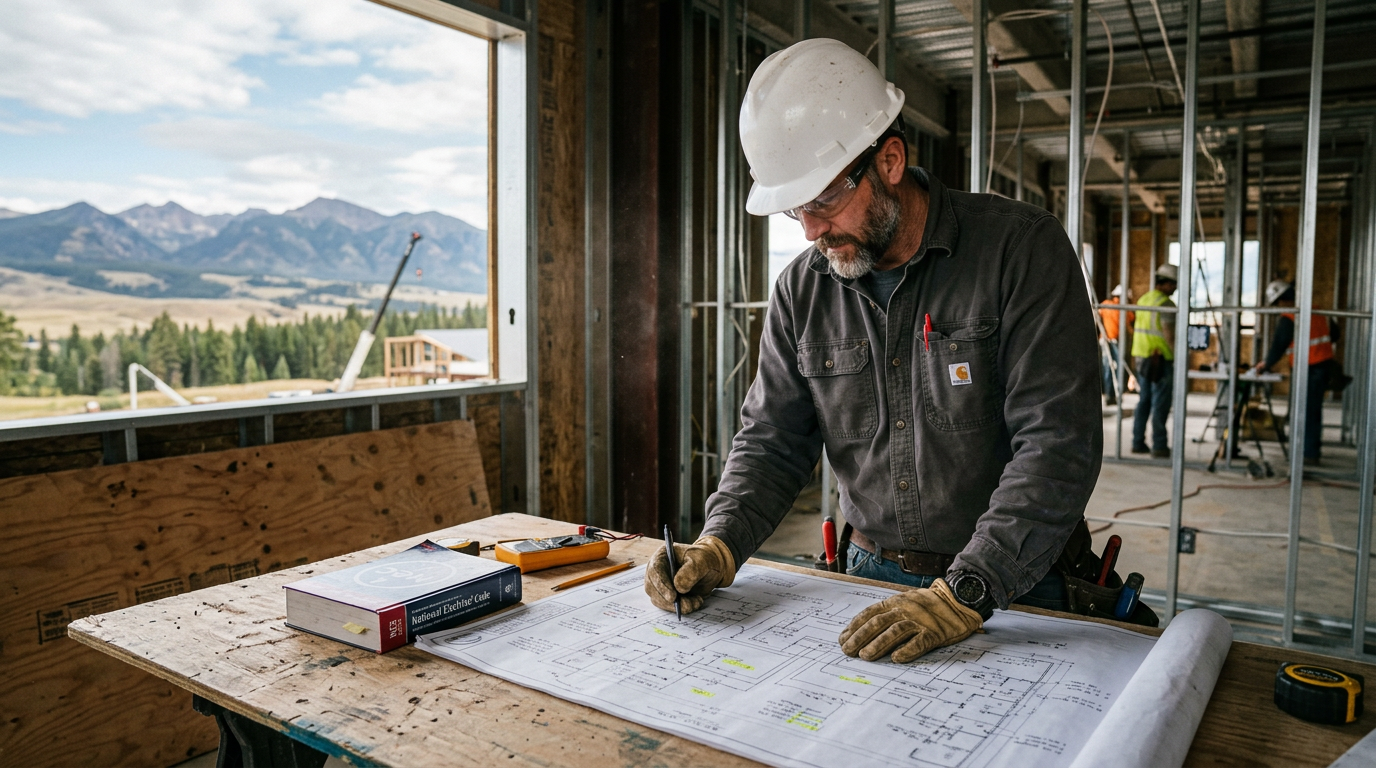
Upgrading to a Master Electrician License in Montana
Upgrading to a Master Electrician License in Montana
You’ve spent years in the field as a licensed journeyman electrician. You’ve wired countless buildings, solved complex problems, and mastered your craft. But now you’re asking: what’s the next step? For ambitious electricians in Big Sky Country, the definitive answer is upgrading to a Montana master electrician license. This isn’t just another certification; it’s a career-defining move that unlocks new levels of responsibility, earning potential, and professional respect.
What is a Montana Master Electrician? More Than Just a Title
In Montana, the distinction between a journeyman, a residential electrician, and a master electrician is clearly defined by the scope of work they are legally allowed to perform. While a journeyman electrician is a skilled professional who performs hands-on electrical work, they typically do so under the general supervision of a master. A master electrician, however, operates at the highest level of the profession.
According to the Montana State Electrical Board, a master electrician has the authority to plan, lay out, and supervise the installation and repair of electrical systems. This elevated status is the gateway to becoming an electrical contractor license holder, giving you the power to run your own business, employ other electricians, and take ultimate responsibility for projects.
Expanded Scope: Supervision, Contracting, and Pulling Permits
The single biggest advantage of the master license is the authority it grants. As a master, you are no longer just an employee; you are a potential business owner and a supervising electrician. This includes:
- Pulling Permits: A master electrician is qualified to obtain an electrical contractor license, which is required for pulling permits on most electrical jobs in the state. This makes you indispensable for any significant construction or renovation project.
- Supervising Crews: You can legally supervise journeyman and apprentice electricians, ensuring all work complies with the National Electrical Code (NEC) and local regulations.
- Operating a Business: The master license is a prerequisite for becoming an unlimited electrical contractor, allowing you to bid on and manage residential, commercial, and industrial projects of any size.
The Journey from Journeyman to Master: Key Requirements
The path from journeyman to master is designed to build upon your existing expertise with advanced experience and knowledge. The Montana State Electrical Board has established specific criteria to ensure that master electricians are among the most qualified professionals in the state. For a complete overview of the process, you should review the Montana Master Electrician Checklist.
Experience: The Foundation of Mastery
Practical experience is the cornerstone of the master license application. According to the Montana State Electrical Board, candidates must meet specific experience benchmarks.
- Journeyman Experience: You must document at least 8,000 hours of legally obtained journeyman level experience.
- Diverse Work Portfolio: Of those 8,000 hours, at least 4,000 hours (50%) must be in commercial, industrial, institutional, or other non-residential settings. This ensures masters have a broad understanding of complex electrical systems.
- Alternative Path: An alternative pathway exists for those with a degree in electrical engineering from an accredited college or university, who must then document 2,000 hours of practical experience.
The Master Electrician Exam: Testing Your Code Knowledge
Once your experience is approved, you must pass the state’s master electrician exam. This challenging test goes beyond the journeyman exam to assess your deep understanding of the Montana electrical code, which is based on the currently adopted version of the NEC. The exam focuses heavily on:
- Advanced Code Calculations
- System Design and Layout
- Safety Regulations
- Supervisory Responsibilities
Thorough preparation using the latest NEC code book and practice tests is essential for success.
The Benefits of Holding a Master License in Montana
Earning your master license is more than a regulatory hurdle; it’s a strategic career move that opens up significant opportunities, especially within the growing Montana electrician job market.
Career Advancement and Increased Earning Potential
A master license immediately qualifies you for higher-paying roles such as project foreman, electrical superintendent, or municipal inspector. The ability to plan and supervise makes you a far more valuable asset to any large contractor. Furthermore, it gives you the option to become your own boss, where your earning potential is limited only by your business acumen and work ethic.
Becoming an Unlimited Electrical Contractor
Perhaps the most compelling reason to upgrade is the ability to obtain an electrical contractor license. This is the key that allows you to build a business, hire a team of electricians, and take on the most lucrative projects across the state. You transition from doing the work to managing the work, creating a scalable business that builds long-term wealth.
Maintaining Your License: Continuing Education and Renewal
Once you achieve your master license, maintaining it is crucial. The Montana State Electrical Board requires all licensed electricians – including Master, Journeyman, and Residential – to complete continuing education for license renewal. According to the board, licensees must complete 16 hours of continuing education units (CEUs) for each year in the renewal cycle. At least 8 of those hours per year must cover updates to the National Electrical Code.
Staying current with code changes is not just a requirement; it’s a professional responsibility that ensures safety and quality on your projects. This is precisely why electrician continuing education is crucial for a successful career. Finding state-approved online electrical courses makes it easy to fulfill these requirements without taking time away from the job site. When your renewal date approaches, be sure to browse our state-approved Montana CE courses to stay compliant.
Montana Continuing Education Courses
Explore our board-approved continuing education courses for Montana professionals:
View CE RequirementsMontana – 8 hours NEC Code Updates (Part 1)
Montana – 8 hours NEC Code Updates (Part 2)
Montana – 16 hours NEC 2023 Code Changes
Frequently Asked Questions (FAQ)
- Is a Montana Master Electrician the same as an Electrical Contractor?
- No. A master electrician license is a professional license for an individual demonstrating a high level of expertise. An electrical contractor license is a business license that allows a company to engage in electrical work. However, in Montana, you must be or employ a licensed master electrician to qualify for an electrical contractor license.
- Can I get a temporary practice permit in Montana?
- Yes, the Montana State Electrical Board may issue a journeyman temporary practice permit to an electrician licensed in another state with equivalent standards which expires after 90 days or upon receipt of licensure examination results. Subsequent temporary practice permits may be issued at the discretion of the Department. An active temporary practice permit allows an applicant to perform work while employed by a licensed electrical contractor. However, a temporary practice permit does not allow an individual to act as a responsible electrician for a
licensed electrical contractor. Applicants who fail an exam with a score of 69 percent or less are not eligible for a temporary practice permit.
Disclaimer: The information provided in this educational content has been prepared with care to reflect current regulatory requirements for continuing education. However, licensing rules and regulations can vary by state and are subject to change. While we strive for accuracy, ExpertCE cannot guarantee that all details are complete or up to date at the time of reading. For the most current and authoritative information, always refer directly to your state’s official licensing board or regulatory agency.
NEC®, NFPA 70E®, NFPA 70®, and National Electrical Code® are registered trademarks of the National Fire Protection Association® (NFPA®)

